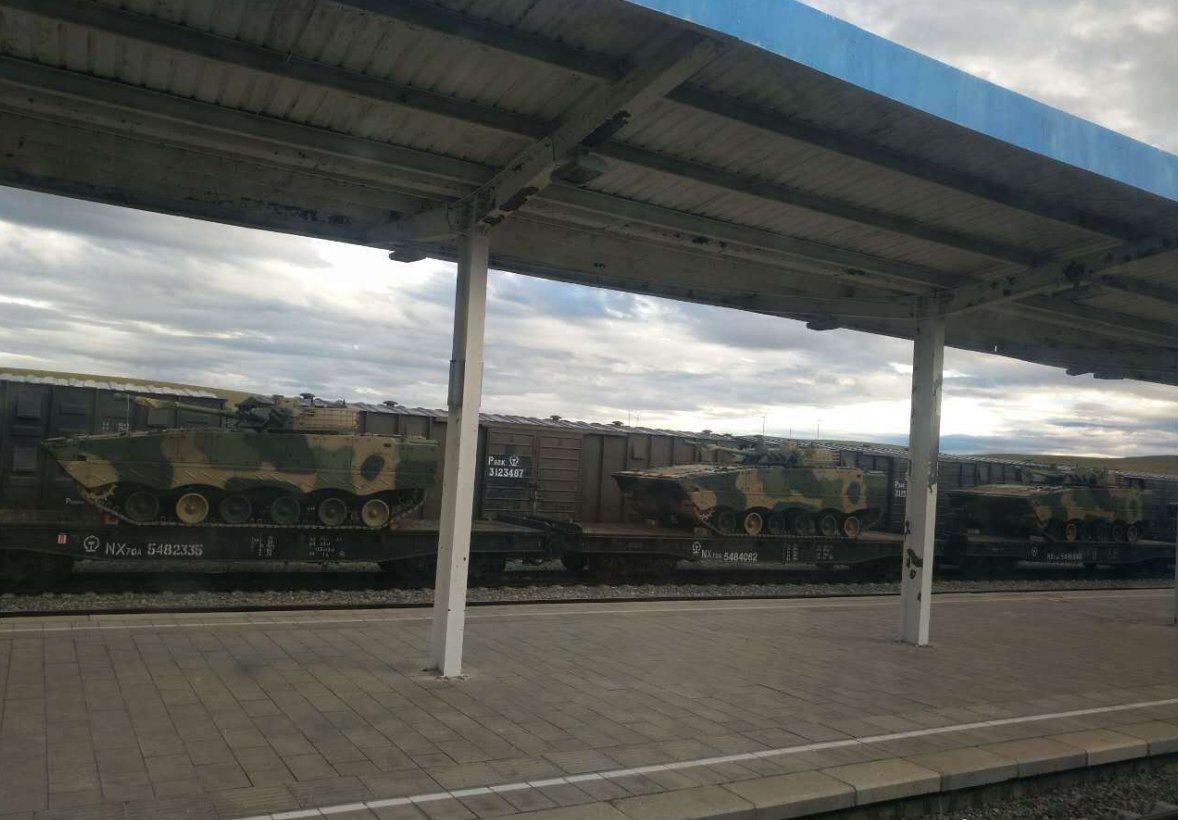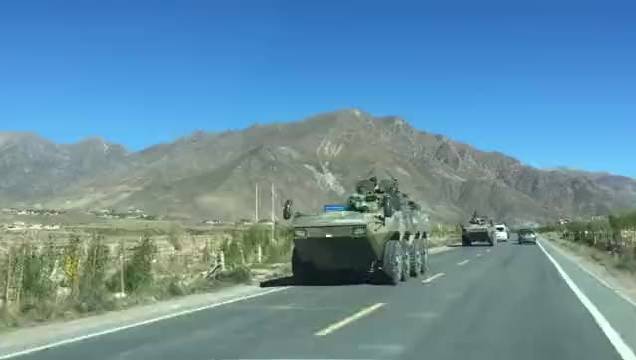China doesn't budge. Now it is up to India . I hope they know what they are doing if you stick your hand in hornet nest
They hope for compromise which seem unlikely
Top China, India Officials Meet as Border Standoff Drags On
By
Iain Marlow
and
Ting Shi
July 27, 2017, 11:22 PM CDT July 28, 2017, 12:36 AM CDT
- In remote Himalayas, troops face off amid tense relations
- China insists on India’s withdrawal before formal talks start
Top Chinese and Indian officials met in Beijing amid a tense border stand-off in the Himalayas and an increasingly protracted diplomatic impasse.
The Thursday meeting between Chinese State Councilor Yang Jiechi and India’s National Security Adviser Ajit Doval was the first high-level meeting since the weeks-long dispute began in a contested mountainous border area near Bhutan. It was part of a meeting of top security advisers for the BRICS nations of Brazil, Russia, India, China and South Africa.
"At present, there are deep and complex changes in the international situation," Yang said at a separate group meeting Friday. "There is an increase in uncertainty and instability."
China’s Yang Jiechi, center, and India’s Ajit Doval, far right, in Beijing on July 28.
Photographer: Ng Han Guan/AFP via Getty Images
Yang held separate meetings with BRICS NSAs including Doval, in which they exchanged views on "bilateral ties, international and regional hotspot issues." Yang also expounded China’s "principled stance" on "important matters," according to the
posted on China’s foreign ministry’s website.
The meeting comes as the two Asian powers jostle for broader geopolitical
in South Asia. New Delhi is wary of Chinese investments in neighboring countries such as Pakistan and Sri Lanka, while Beijing is irked by India’s lack of support for its global Belt and Road infrastructure and trade initiative.
"Doval’s official purpose is attending the BRICS meetings, but the border dispute will be high up on the agenda because that’s the biggest elephant in the room," said
, a former Chinese diplomat based in India and Pakistan, who is now director of the Center for South Asian Studies at Shanghai’s Fudan University. "The visit will present the first good and genuine opportunity for both sides to sit down and discuss where we go from here."
The dispute is at a three-way junction between Bhutan, China’s Tibet and India’s Sikkim. Bhutan accused a Chinese road-building party of crossing into its territory on June 16. India
its troops approached the Chinese party and urged them to "desist from changing the status quo."
Most observers expect the standoff to be resolved diplomatically, but a sense of rising nationalism in both countries makes it difficult for either side to stand down. That risks prolonging the face-off as troops continue to stare at each other of a September BRICS summit in China’s Xiamen.
Chinese state-owned media have issued editorials reminding India of China’s victory in a 1962 border war. The Communist Party-affiliated Global Times
India will suffer "worse losses" than in 1962 if it doesn’t stand down and warned New Delhi to "get prepared for all possibilities from a potentially grave escalation of tension in the future."
On July 24, defense ministry spokesman Wu Qian warned India not to underestimate the country’s armed forces. China’s determination to defend its territory was "unshakable," he said, adding that it’s "easier to shake a mountain than to shake the People’s Liberation Army."
‘Harsh’ Rhetoric
"Chinese rhetoric has remained harsh, rather than softening, and Beijing will want to see how India responds to sustained pressure," said Shashank Joshi, a senior research fellow at London’s Royal United Services Institute, or RUSI. The Doval visit could lay the groundwork for formal talks but it is unlikely to produce a "quick breakthrough," he said.
India and China have several contested borders and minor incursions happen from time to time. But this stand-off is the most serious in decades. The dispute is near a sensitive narrow corridor that connects India to its northeast and involves a third country.
"This is different from previous times, both in terms of the rhetoric and in terms of what they’ve chosen to do," said Shivshankar Menon, a former Indian national security adviser who was involved in previous border negotiations with China. "The Chinese signaling has also changed. They obviously see a function for the Global Times that makes sure that China’s views get into the headlines abroad."
China’s Confidence
China has
Indian troops of illegally trespassing into Chinese territory and said India must withdraw troops before any formal negotiations.
Indian officials have said they want a peaceful resolution. Indian Foreign Secretary S. Jaishankar told a group of diplomats in New Delhi on July 21 that the two countries were still talking, according to one western diplomat.
China’s statements on the dispute reflect its confidence, according to Michael Kugelman, a senior associate for South Asia at the Washington, D.C.-based Woodrow Wilson Center.
"China on a very fundamental level has the upper hand because of the strength of its armed forces, which are superior to those of India on many levels," Kugelman said. "India, which is intent on avoiding a conflict, is using great caution in its public messaging to avoid further antagonizing its Chinese rival. I imagine New Delhi has been particularly struck by the unusually sharp rhetoric emanating from the Chinese media."
China will not be the first to budge in this standoff because China believes its military is stronger and its position on the border is indisputable, said professor Zhang Li of Sichuan University’s Institute of South Asian Studies.
"The risk will only increase if the stand-off lingers on," Zhang said.




